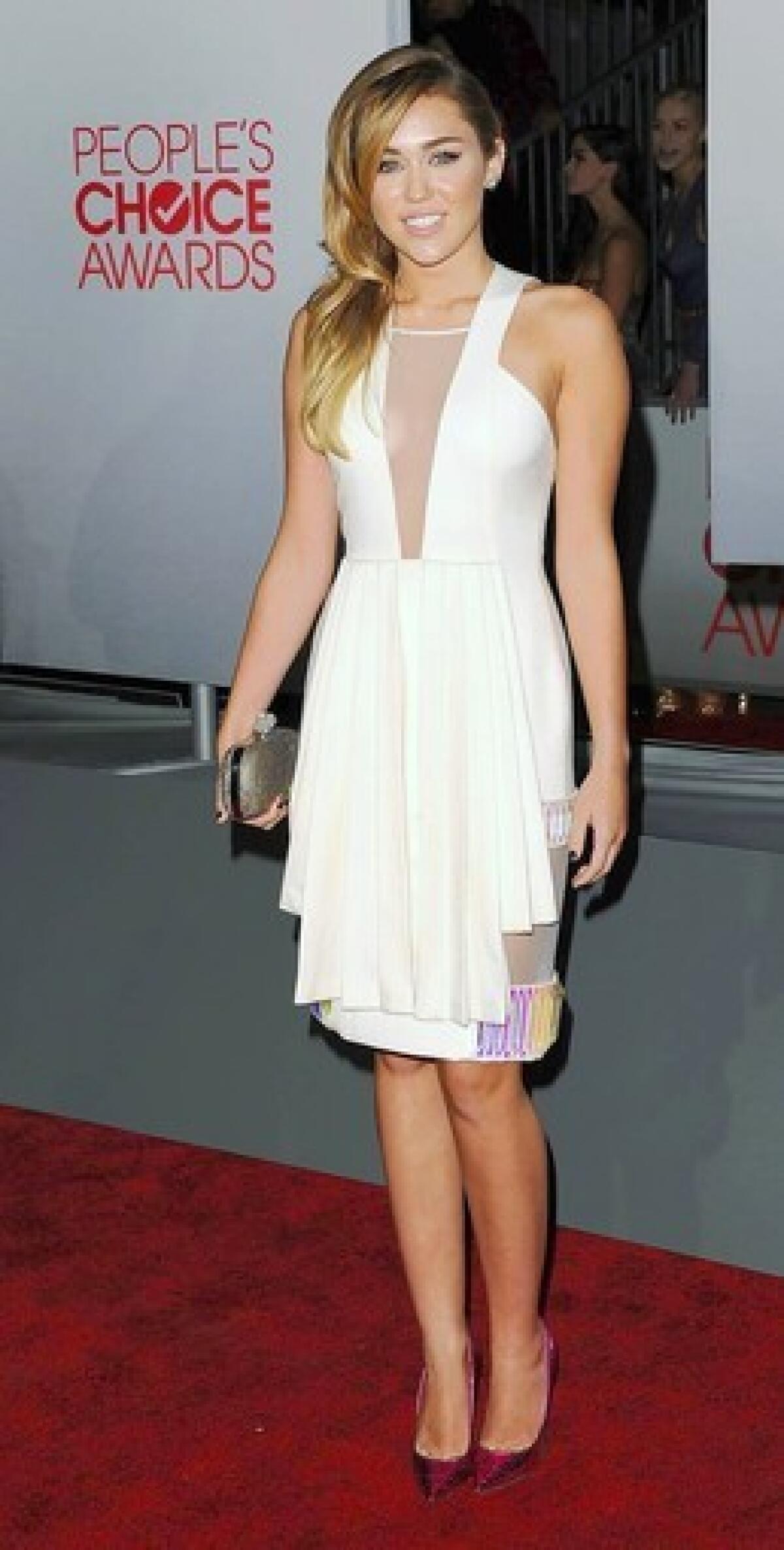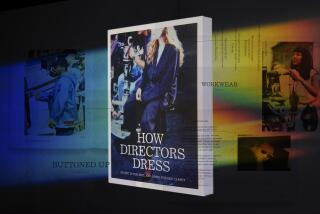Red carpet fashion statements

With a lifetime of red carpet misses ranging from uncomfortably busty Guinevere gowns to something reminiscent of Grandma’s doily tablecloth, Disney princess Miley Cyrus hasn’t exactly been fashion It Girl material. Until now.
The sleek and chic futuristic white dress Cyrus wore to the People’s Choice Awards on Jan. 11 was so well-received that it could single-handedly turn the star’s fashion fortunes around. The dress was by David Koma, a designer who hails from Georgia, shows in London and is so new to the fashion scene that his website is still under construction.
When it comes to the red carpet, it’s easy to think that a beautiful dress is just that: a beautiful dress. But the right dress can be a game changer when it comes to how a celebrity is perceived and the career opportunities that follow. And the wrong dress can mean this year’s fresh young thing is forgotten by the time the Oscars red carpet is rolled up.
Some people get it. Rooney Mara, for instance, has been appearing on red carpets in tough-and-sexy black gowns by Nina Ricci and Roksanda Ilincic that have more than a hint of her Lisbeth Salander character in “The Girl With the Dragon Tattoo.” Bérénice Bejo, on the other hand, has been blending into the background, wearing a series of blue gowns by Gucci and Elie Saab, each one indistinguishable from the last, and missing an opportunity to stand out, either on her own behalf or on behalf of her hit film “The Artist.”
“Some actresses don’t understand that a great dress on the red carpet does have an impact,” says Hal Rubenstein, In Style fashion director and author of the new book “100 Unforgettable Dresses.”
“They are just looking for the pretty dress, not the right dress.”
Compare Bejo to Marion Cotillard, another French ingénue who was a relative unknown when she burst on the awards show scene in 2007. Nominated for several film awards for playing Edith Piaf in the film “La Vie En Rose,” Cotillard was on a red carpet merry-go-round similar to Bejo, who has been nominated for several awards for “The Artist.”
“When Cotillard was nominated, she wore one distinctive dress after another,” Rubenstein says. “‘La Vie En Rose’ wasn’t a film that was going to be a big hit, yet she looked so distinctive, even the public who didn’t see the film was asking who is this woman. Bérénice Bejo is a lovely actress and a lovely woman, but her clothing is generic. So consequently, we’re not noticing her.”
Emma Stone pulled off a red carpet coup at last year’s Golden Globe Awards when she showed up in a simple coral Calvin Klein gown and white-blond hair and upstaged everyone.
“She was a brand new girl who had an unexpected hit in the kids’ film ‘Easy A,’” Rubenstein says. “And when she showed up, it was like someone opened a window. She was so striking, it introduced her to an adult audience.” In the year since, Stone has become a Hollywood and fashion world darling. In 2011, she racked up Glamour, Elle, Teen Vogue and Vanity Fair magazine covers.
The dress Cyrus chose for the People’s Choice Awards speaks volumes about where she would like her career to go. For the first time, she came across less as a hard-partying, trash-talking, peace sign-flashing teen and more as a sophisticated, well-dressed, refined young woman. And as it turns out, that’s what her stylist intended.
“She’s gotten a bad rap in the press,” says Simone Harouche, who has worked with Cyrus for three years. “And I was sick of it. So I decided I was going to show people she is capable of being fashionable and grown up, not just this cutesy person.”
Convincing designers to lend clothing to Cyrus hasn’t always been easy, Harouche says. So for this event, instead of pulling clothes from the usual Los Angeles showrooms, Harouche turned to London, known for its edgy fashion scene. After seeing runway photographs online, she pulled several pieces from Koma’s spring 2012 collection, which was inspired by tribal body art, underwater scenes and the work of contemporary artist Kim Joon.
“Koma’s designs are very interesting, modern and sexy at the same time. This dress has deep, plunging neck and side panels, but they have mesh insets. So it isn’t in-your-face sexy. And the iridescent beading looked very cool under the lights. There was a lot going on but it was sleek,” Harouche says.
When Harouche took the dress to Cyrus for a fitting, they both knew the style was “risky,” but that it was a “step forward” for the star.
The gamble paid off. The Huffington Post praised Cyrus for “turning over a new couture leaf,” and the London Sun newspaper said she “topped the stakes.” Meanwhile, E! Online said the dress was “surprisingly chic and fashion forward.”
Cyrus could well be on her way to creating a new style identity for herself. But the perfect match of celebrity personality and dress is the exception, not the norm, as one could see from the sea of unremarkable dresses at the Golden Globe Awards last Sunday. The reason? Not enough choices in some cases, and too many in others.
“At this point, there are so many celebrities wanting dresses that it’s becoming more and more difficult,” says Harouche, who pulls an average of 30 potential gowns per client per event. “You see so much of the same thing because there are so many people and so many red carpet events. And sometimes designers hold dresses back and say they are saving them for this event or this person.”
Barbara Tfank, the Los Angeles-based fashion designer who has dressed Adele, Michelle Obama and others, knows first-hand the importance of matching the right personality to the right dress. In 1995, she worked with Prada to design the beaded lavender gown Uma Thurman wore to the Oscars when she was nominated for supporting actress for “Pulp Fiction.”
“The difference in that dress and a lot of the dresses you see [on the red carpet] today, is that it was designed for her,” Tfank says. “I was a costume designer at the time. And that dress was an amalgam of fashion and film in the way we approached designing it.”
Tfank asked Thurman whom she wanted to be that day, “which is what costume designers do when they work on films. We decided on Grace Kelly meets Glinda the Good Witch from ‘Wizard of Oz.’ She felt at the moment those were the right icons for her.”
The lavender fabric was tested on camera to make sure the color value worked, and that the sequins showed up, Tfank remembers. “Everything is under klieg lights [on the red carpet], so the color value is diminished.” If you wear a buff nude, it looks white.
“Everything fell together,” Tfank says. “It was young, fresh and comfortable-looking. It was about Uma, and her likes and dislikes and preferences. That dress didn’t exist before. It came from my imagination. It was about building a character.”
The personal approach Tfank took to designing Thurman’s gown was more reminiscent of celebrity dressing in the Golden Age of Hollywood, when the job fell to studio costume designers such as Edith Head and Helen Rose. Actors were under contract, and it was in the studios’ interest to create consistency in their images on-screen and off. “As an actress, you fit a slot, you fit a type,” Rubenstein says. “Norma Shearer was the spotless heroine, Ava Gardner the temptress. And you dressed accordingly.”
But the studio system is long gone, and now the red carpet is big business for the stars themselves and for the designers who want to dress them. Part of an actor’s career plan involves landing lucrative endorsement deals and advertising campaigns, and maybe even having a clothing collection of one’s own. Which is why, more than ever, the objective on the red carpet should be to say, “Look at me! I can make a fashion statement!”







